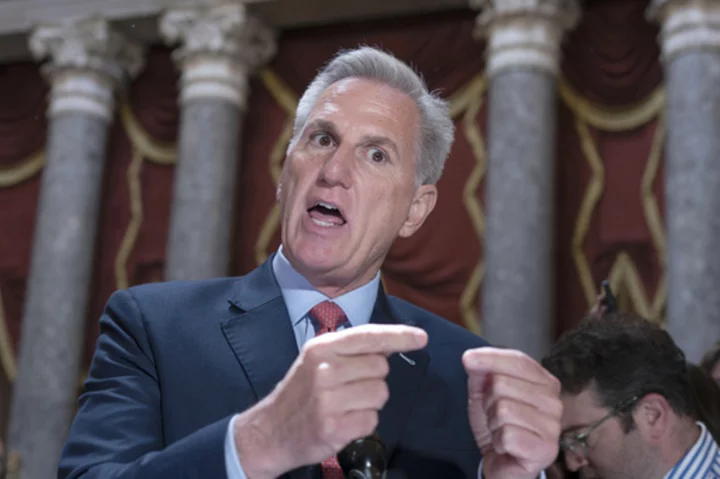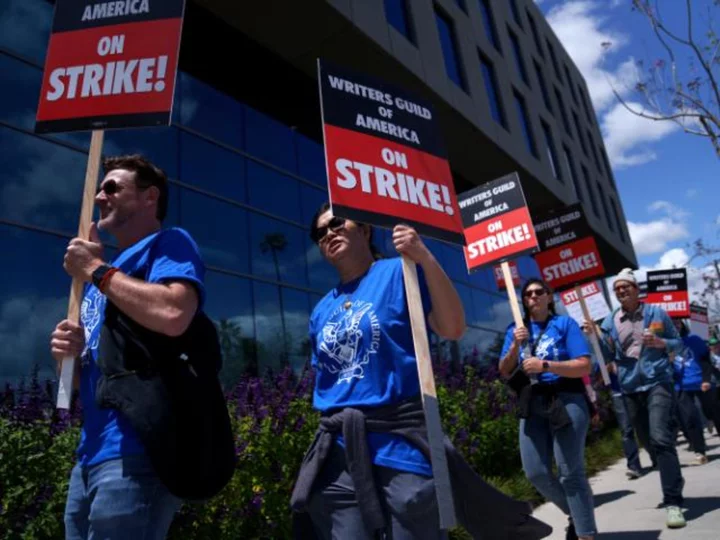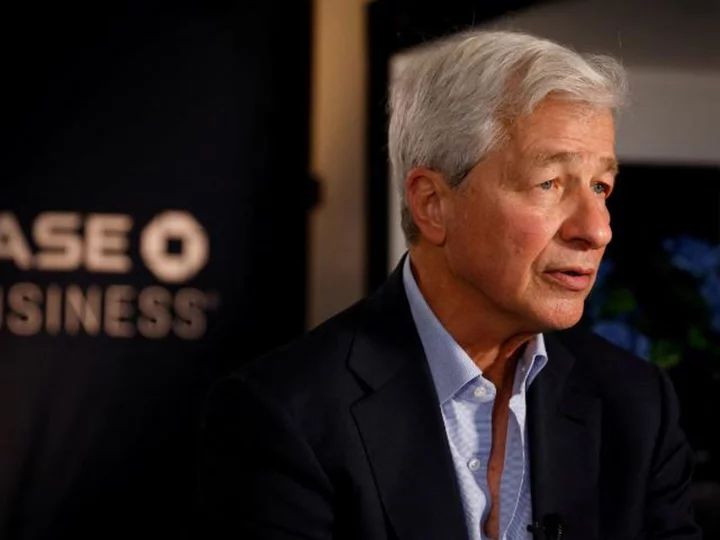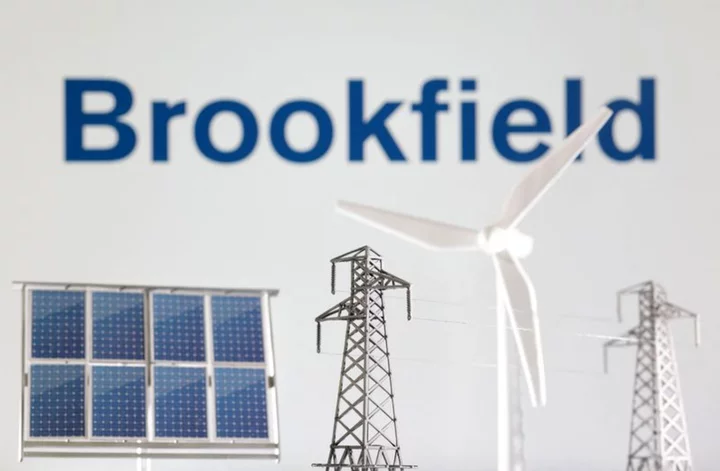WASHINGTON (AP) — There was Kevin McCarthy, saying the White House was refusing to give on spending as the speaker returned to the Capitol one morning this week. Just a few short hours later, there was McCarthy again, this time telling reporters that the sole concession that Republicans were making to the White House on the debt limit was in fact, raising the debt limit.
As representatives from the White House and the GOP-controlled House race toward a deal that would pave the way for lawmakers to lift the debt limit, one side has been eager to speak publicly about the closed-door talks — trying to shape public perceptions of the negotiations.
It's not the side that typically wields the bully pulpit.
President Joe Biden has made a deliberate decision to go quiet as his team gets down to the wire in the debt-limit talks, according to White House officials. It's his deeply held view that speaking in public about negotiations does nothing to produce an outcome.
The already voluble McCarthy, by contrast, is especially chatty these days, as he aggressively tries to set the terms of the public debate. His own negotiators also engage at length with journalists on the debt-limit talks.
“We have to get an agreement that's worthy of the American people," the speaker told a small clutch of reporters outside the House chamber late Wednesday afternoon, which — by his aides' count — was at least his 12th gaggle or news conference with reporters this week alone.
In comparison, Biden has said little publicly on the standoff since he returned from an international summit earlier this week to deal with the debt disarray in Washington. He spoke for less than three minutes as he opened an Oval Office meeting with McCarthy late Monday afternoon, but aside from that, has not talked in public about the issue.
The primary messaging vehicle for the White House has been press secretary Karine Jean-Pierre’s daily news briefings. On Wednesday, she began by highlighting comments from Rep. Matt Gaetz, R-Fla., openly saying that Republicans were holding the debt limit “hostage” in talks with the White House.
“This is a manufactured crisis,” said Jean-Pierre, who would not elaborate on any specifics of the ongoing talks during her 46-minute briefing.
But no surrogate can be a substitute for the principal, and Biden, by relinquishing the public megaphone to Republicans this week, risks ceding the narrative over the debt-limit talks. Some Democrats signaled that the White House's current communications strategy was due for an adjustment.
“The president needs to be more forward-leaning in making his case," Rep. Ritchie Torres, D-N.Y., said Wednesday. He continued: "But the media is treating as reasonable a position that is inherently unreasonable. The position that Kevin McCarthy has taken is extreme. He’s leveraging the threat of default to export political concession that he could never have achieved through the normal democratic process.”
The White House has defended its communications approach, noting that Biden has made his policy priorities clear for months and that by taking a step back from the limelight, he was letting the negotiators have space to maneuver.
“I feel strongly by saying this: The president is certainly not media shy,” Jean-Pierre said Wednesday, as she chuckled slightly. The chief spokeswoman for the White House noted that Biden spoke on Monday (albeit briefly) and on Sunday at a news conference in Hiroshima, Japan, and that “the president has been very clear where he stands on what Congress should be doing, which is dealing with the debt limit — something that is their constitutional duty.”
Earlier in the debt-limit talks, Biden was not shy about hammering on so-called “MAGA Republicans,” most notably holding an event in suburban New York City one day after his first Oval Office meeting with the top four congressional leaders on resolving the standoff.
But this week, the president decided not to speak publicly after he sat down one-on-one with McCarthy because, Biden believed, that would be more productive in trying to get a debt-limit outcome, said one White House official, who requested anonymity to discuss internal West Wing deliberations.
A second White House official also emphasized that Biden did not think it made much sense to be public about negotiations when the talks were productive, but no deal had yet been reached.
“It’s my expectation that if Republicans continue to play games with the American economy, threaten default and drive us into a very dangerous situation that we’ll begin to hear from the Biden administration, if not the president himself,” House Minority Leader Hakeem Jeffries, D-N.Y., said Wednesday when asked whether the president himself needed to be more outspoken on the ongoing talks.
Jeffries added: “I have full confidence in the goodness of President Biden, who wants to find a resolution that protects everyday Americans and is engaging in good-faith discussions to try to arrive at that conclusion.”
It’s also a tale of two different negotiating styles.
Biden’s team, all veteran Washington operators who have spent most of their public service careers as senior aides, have been perennially loathe to speak to the press, particularly in the middle of tense and unfinished negotiations. The White House team is being led by Steve Ricchetti, counselor to the president, legislative affairs director Louisa Terrell, and Office of Management and Budget Director Shalanda Young, who spent much of her career as staff director of the House Appropriations Committee.
On the other side, McCarthy's emissaries are Reps. Garret Graves of Louisiana and Patrick McHenry of North Carolina, who are fluent in talking to the press as elected officials and as key allies of the speaker.
“What I’m telling you is that every once in a while, I feel like I’m buying a used car," Graves said of dealing with the White House during one 42-minute gaggle with journalists on Tuesday afternoon, when negotiations seemed to be at a standstill.
Still, there are times when even the most talkative people go quiet. After returning from the White House late Wednesday afternoon from another negotiating session, Graves and McHenry hurried away from reporters pestering them for details — a notable contrast to the past several days.
___
Associated Press writer Kevin Freking contributed to this report.









